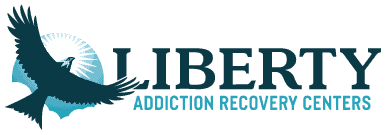Is Mental Health and Substance Abuse Connected?
Co-occurring disorders and substance use are closely interconnected, creating a complex web that affects millions of individuals and their families. At Liberty Addiction Recovery Centers, we understand the critical importance of addressing both issues concurrently to foster a successful recovery journey. The statistics are staggering:
- 7.7 million adults in the U.S. have co-occurring mental illness and substance use disorders.
- Among the 20.3 million adults with substance use disorders, 37.9% also had a mental illness.
- Among the 42.1 million adults with mental illness, 18.2% also had a substance use disorder.
- 52.5% of those with co-occurring mental and substance use disorders received neither mental health care nor substance use treatment.
- Only 9.1% of those with co-occurring disorders received treatment for both conditions.
These numbers clearly illustrate the significant overlap between mental health issues and addiction. However, despite evidence showing that a comprehensive, integrated approach is most effective, too few individuals receive the dual treatment they so desperately need. At Liberty, we are dedicated to changing this narrative by providing holistic care that addresses both mental health and addiction.
Sources:
nida.nih.gov – Substance Use and Other Mental Disorders
SAMHSA – 2022 National Survey on Drug USe and Health Data
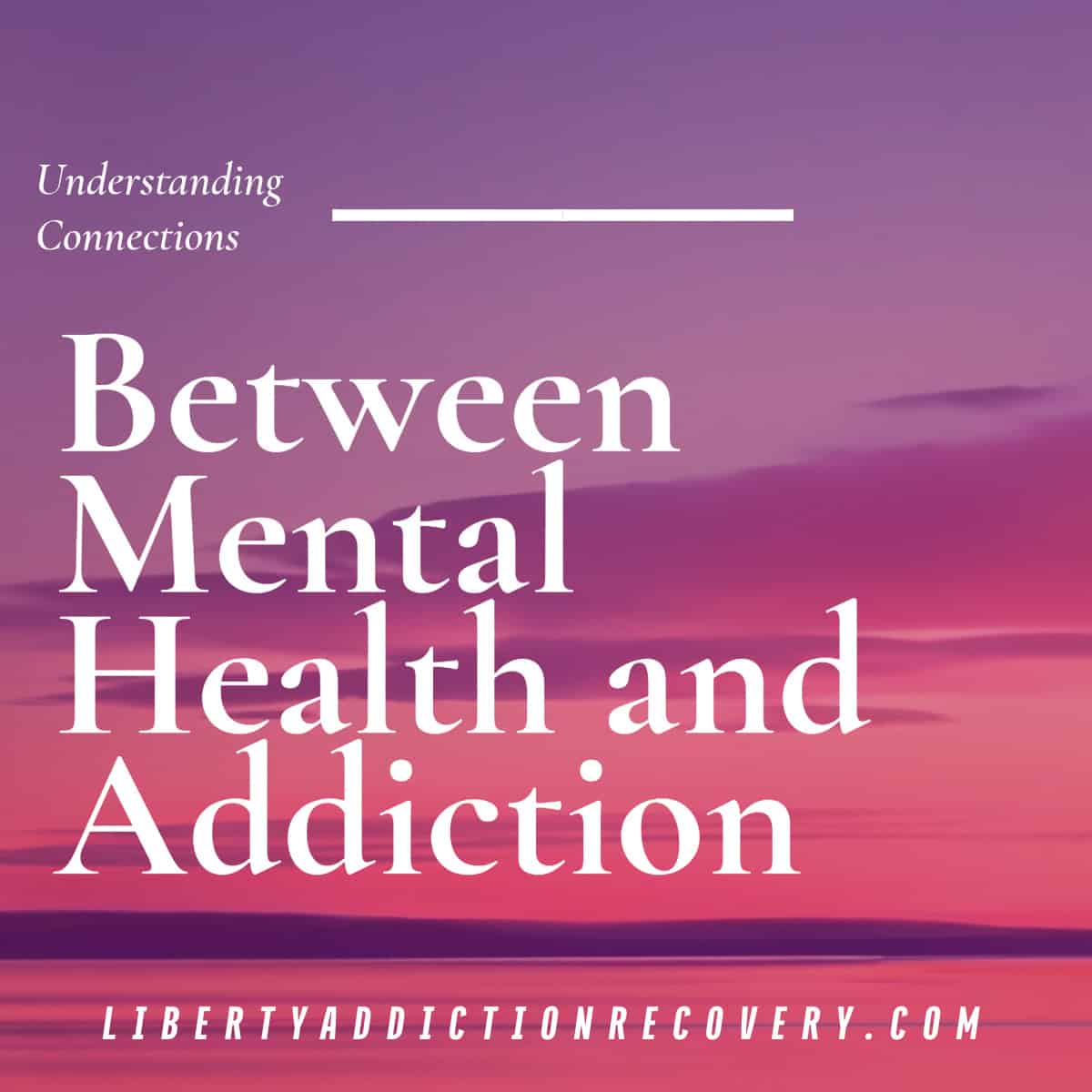
Understanding Co-Occurring Disorders
Co-occurring disorders, also known as dual diagnosis, refer to the simultaneous presence of a mental health disorder and a substance use disorder in an individual. This dual diagnosis can complicate the Treatment process, as the symptoms of one disorder can exacerbate the symptoms and behaviors associated with the other.
The prevalence of co-occurring disorders is alarmingly high:
- In 2022, 21.5 million people adults in the U.S. had a co-occurring disorder. (source: SMAHSA)
Treating both conditions simultaneously is crucial as it leads to better outcomes. When treated in isolation, the risk of relapse and exacerbation of symptoms increases. Integrated treatment approaches, which address both mental health and substance use disorders, are the most effective in achieving long-term recovery.
At Liberty Addiction Recovery Centers, we understand that every individual’s situation is unique. Our team is skilled in identifying and treating co-occurring disorders through a personalized approach that combines evidence-based therapies with compassionate care. We believe in addressing the root causes of addiction and mental health issues to pave the way for sustainable recovery.
Common Co-occurring Disorders Associated with Addiction
Major Depression
Major depression is one of the most common mental health disorders associated with substance abuse. This debilitating condition is characterized by persistent sadness, lack of interest in activities, changes in appetite, and sleep disturbances. The link between depression and addiction is significant:
- Among people with major depression, 16.5% had an alcohol use disorder, and 18% had a drug use disorder. (source: National Library of Medicine)
- Depression is one of the leading causes of disability worldwide and often co-occurs with substance abuse, as individuals may use substances in an attempt to self-medicate and alleviate their emotional pain.
At Liberty Addiction Recovery Centers, we recognize the complex interplay between depression and addiction. Our integrated treatment programs aim to address both conditions simultaneously, promoting healing and long-term recovery.
Bipolar Disorder
Bipolar disorder is marked by extreme mood swings, ranging from manic highs to depressive lows. The intensity of these emotional states can drive individuals to seek solace in substances:
- People with bipolar disorder have a staggering 48.5% rate of co-occurring substance use disorder. (source: National Library of Medicine)
- Substance use often serves as a misguided attempt to manage the emotional turmoil of bipolar episodes.
Our dedicated team at Liberty has extensive experience in treating individuals with bipolar disorder and addiction. We provide tailored therapeutic strategies to help clients manage their mood swings without resorting to substance use.
Anxiety Disorders
Anxiety disorders, including generalized anxiety disorder (GAD), social anxiety, panic disorder, obsessive-compulsive disorder (OCD), and post-traumatic stress disorder (PTSD), significantly increase the risk of addiction:
- 17.7% of those with substance use disorders also had an anxiety disorder.
- Many individuals turn to substances to self-medicate and alleviate their anxiety symptoms.
At Liberty, we employ a variety of evidence-based therapies to help clients manage anxiety and reduce their reliance on substances. By addressing the underlying anxiety, we pave the way for a more stable and substance-free life.
Post-Traumatic Stress Disorder (PTSD)
PTSD is a mental health condition triggered by experiencing or witnessing a traumatic event. Symptoms include flashbacks, severe anxiety, and uncontrollable thoughts about the event:
- About half of those seeking addiction treatment meet the criteria for current PTSD.
- The intense symptoms of PTSD, such as flashbacks and negative thoughts, drastically increase the risk of substance abuse as individuals often use substances to numb their distress.
Liberty Addiction Recovery Centers offers specialized programs to address both PTSD and substance use disorders. Our comprehensive approach ensures that clients receive the care and support they need to heal from trauma and addiction.
Attention-Deficit/Hyperactivity Disorder (ADHD)
ADHD is a neurodevelopmental disorder characterized by difficulties with attention, hyperactivity, and impulsiveness. The connection between ADHD and substance abuse stems from the impulsivity and restlessness associated with the disorder:
- Around 15% of adults with ADHD have a substance use issue, with 70% of those abusing substances to relieve ADHD symptoms.
Personality Disorders
Personality disorders, such as borderline personality disorder (BPD), massively elevate the risk of addiction:
- Some studies find a lifetime risk of addiction as high as 72% in individuals with personality disorders.
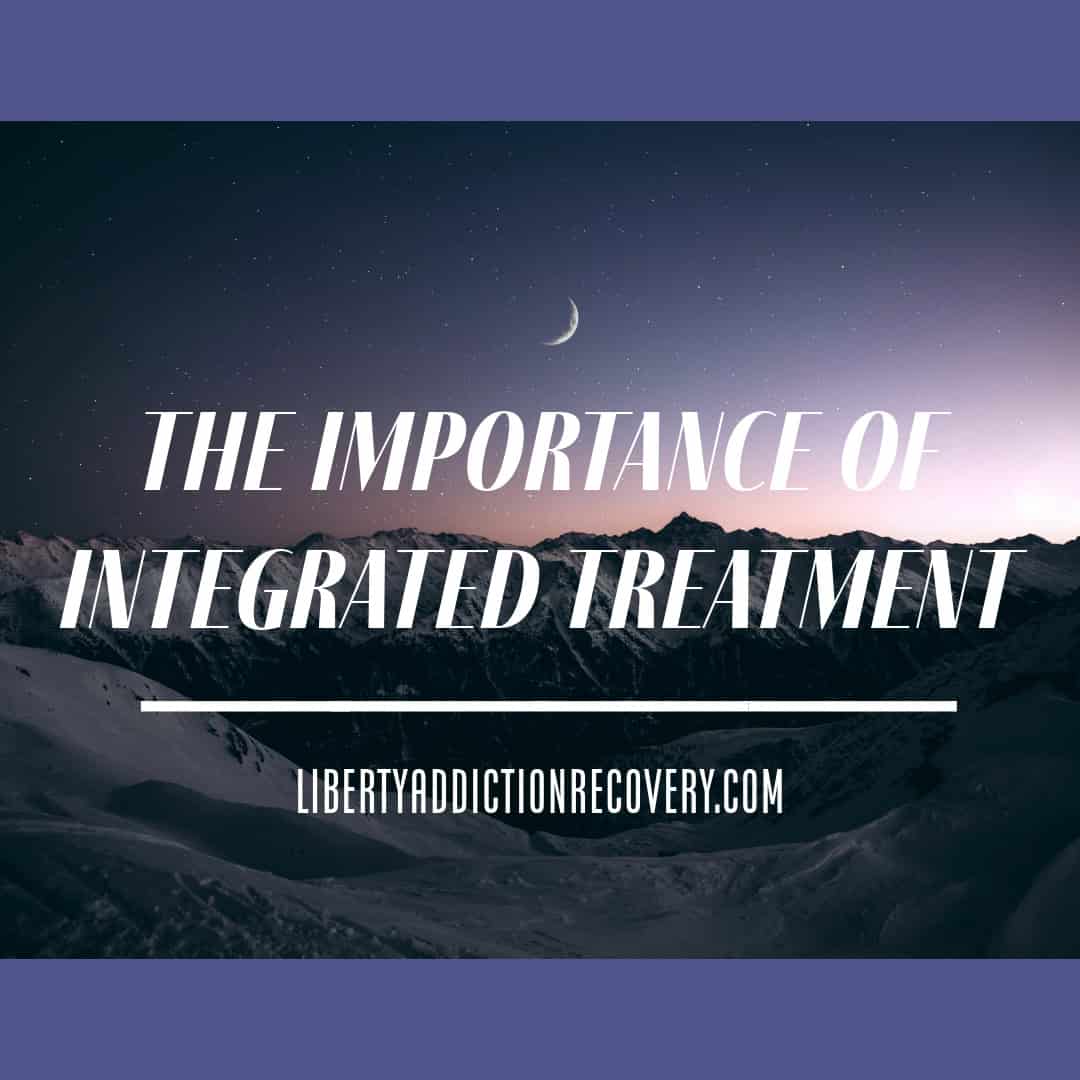
The Importance of Integrated Treatment
What is Integrated Treatment?
Integrated treatment refers to a holistic approach where both mental health disorders and substance use disorders are treated simultaneously. This method recognizes that co-occurring disorders are interconnected, and addressing them together offers the best chance for recovery.
Benefits of Integrated Treatment
The benefits of integrated treatment are well-documented. Here are some key advantages:
- Comprehensive Care: Integrated treatment provides a full spectrum of care that addresses all aspects of an individual’s health, from mental well-being to physical health.
- Reduced Relapse Rates: By treating both disorders at the same time, the risk of relapse is significantly reduced. Mental health symptoms can amplify the urge to use substances and vice versa; addressing both helps break this cycle.
- Improved Quality of Life: Individuals receiving integrated care tend to experience a higher quality of life, better emotional stability, and improved social functioning.
- Coordinated Care: Integrated treatment ensures that healthcare providers are working together, offering a cohesive treatment plan that orchestrates various therapeutic modalities.
- Inclusive Family Therapy: Family involvement is a cornerstone of integrated treatment, helping to create a robust support system for the individual.
The Need for Integrated Treatment
Despite the clear benefits, statistics reveal a gap in the provision of integrated care:
- 52.5% of those with co-occurring mental and substance use disorders received neither mental health care nor substance use treatment.
- Only 9.1% of those with co-occurring disorders received treatment for both conditions.
These figures highlight an urgent need for more comprehensive care models. At Liberty Addiction Recovery Centers, we’re committed to closing this gap by providing integrated treatment that addresses both mental health and addiction comprehensively.
Examples of Integrated Treatment Approaches
Several integrated treatment approaches have proven effective in addressing co-occurring disorders. Some of the methods we employ at Liberty include:
- Cognitive Behavioral Therapy (CBT): CBT helps individuals understand the link between their thoughts, emotions, and behaviors, providing them with tools to manage both mental health symptoms and substance use triggers.
- Dialectical Behavior Therapy (DBT): Originally developed for borderline personality disorder, DBT combines cognitive-behavioral techniques with mindfulness practices to help individuals manage their emotions and reduce self-destructive behaviors.
- Family Therapy: Involving family members in the treatment process is crucial for fostering a supportive environment. Family therapy helps improve communication, resolve conflicts, and develop healthy coping mechanisms.
- Medication-Assisted Treatment (MAT): For certain disorders, medications can be an effective part of treatment. MAT combines medications with counseling and behavioral therapies, providing a “whole-patient” approach to the treatment of substance use disorders.
- Holistic Therapies: Complementary therapies such as yoga, meditation, and art therapy can play a significant role in an integrated treatment plan, promoting overall well-being and stress relief.
At Liberty Addiction Recovery Centers, we pride ourselves on our personalized and compassionate approach. We aim to integrate various treatment modalities to create a comprehensive plan tailored to each individual’s needs, ensuring they receive the best possible care.
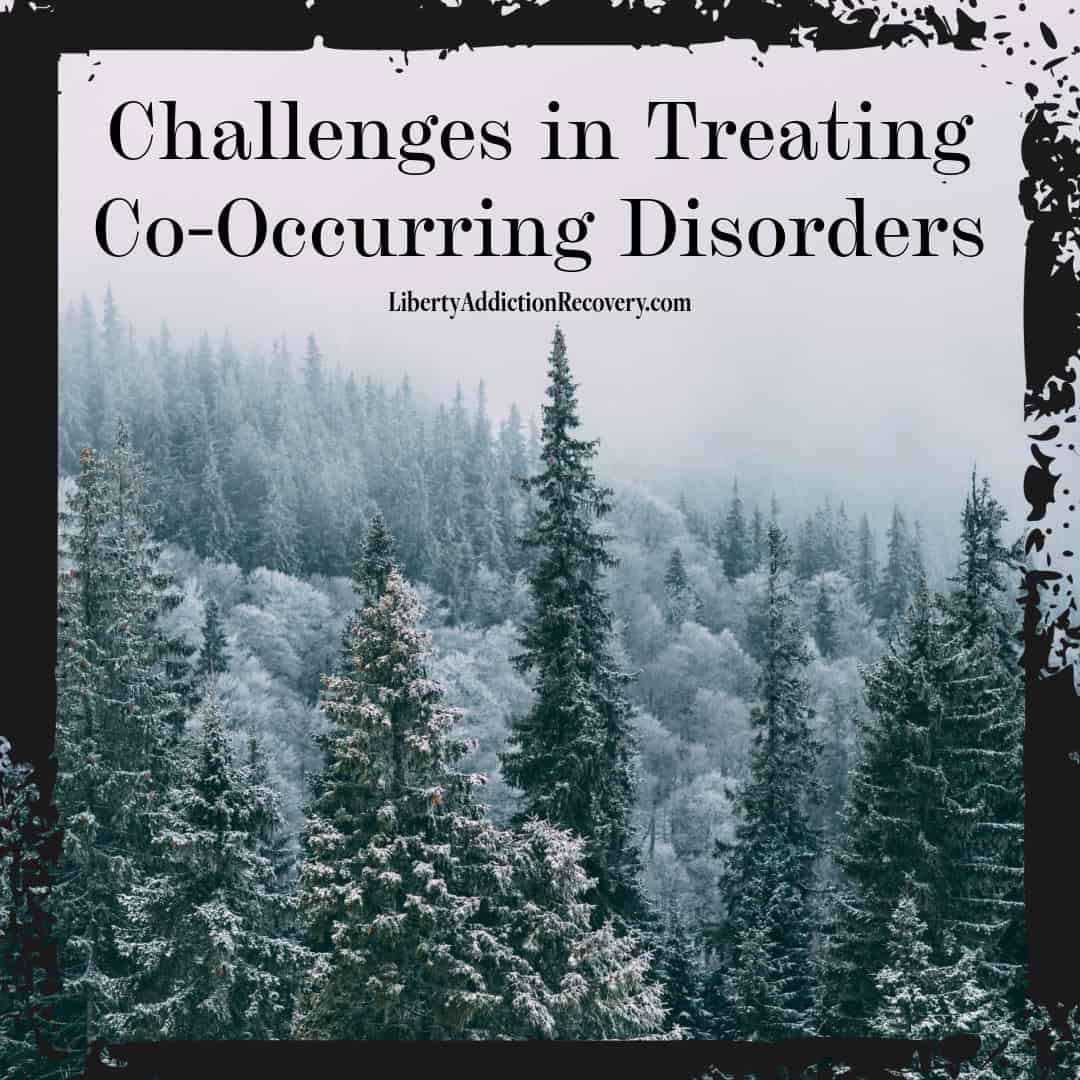
Challenges in Treating Co-Occurring Disorders
Barriers to Effective Treatment
Treating co-occurring mental health and substance use disorders is fraught with challenges that can impede the recovery process. Some of the most common barriers include:
- Stigma: Societal stigma surrounding both mental illness and substance abuse often prevents individuals from seeking the help they need. This stigma can exist within communities, families, and even healthcare settings, making it difficult for those struggling to feel understood and supported.
- Lack of Resources: Despite the high prevalence of co-occurring disorders, there is often a shortage of specialized treatment programs that offer integrated care. Limited access to skilled professionals and comprehensive resources can hinder effective treatment.
- Misdiagnosis: Co-occurring disorders can be challenging to diagnose accurately. Symptoms of mental health issues and substance use can overlap, leading to misdiagnosis or underdiagnosis, which results in inadequate treatment plans.
Challenges in Identifying and Diagnosing Co-Occurring Disorders
Properly identifying and diagnosing co-occurring disorders requires a nuanced understanding of the interplay between mental health and addiction. Several factors complicate this process:
- Overlapping Symptoms: Symptoms of mental health disorders, such as anxiety, depression, or mood swings, can mirror the effects of substance abuse, making it difficult to distinguish between the two.
- Self-Medication: Individuals may use substances to cope with the symptoms of mental health disorders, masking the underlying issue and complicating the diagnostic process.
- Withdrawal Symptoms: Withdrawal from substances can produce symptoms that mimic mental health conditions, further complicating diagnosis. For example, substance withdrawal can lead to anxiety, depression, and irritability, which can be mistaken for primary mental health disorders.
- Dual Responsibility: Healthcare providers often face the challenge of addressing both mental health and addiction simultaneously. This requires specialized training and a comprehensive approach to care, which is not always available in traditional treatment settings.
Strategies to Overcome These Challenges
Despite these challenges, there are effective strategies to navigate the complexities of treating co-occurring disorders:
- Integrated Treatment Programs: It is crucial to establish programs that offer simultaneous treatment for mental health and substance use disorders.
- Comprehensive Assessments: Conducting thorough assessments that consider both mental health and substance use history can lead to more accurate diagnoses. Our experienced team at Liberty uses evidence-based tools and in-depth evaluations to identify co-occurring disorders accurately.
- Continued Training and Education: Ensuring healthcare professionals receive ongoing training in the latest treatment modalities and best practices for co-occurring disorders can improve treatment outcomes. Liberty emphasizes continuous education to stay at the forefront of dual diagnosis care.
- Supportive Environment: Creating a non-judgmental and supportive environment encourages individuals to seek help without fear of stigma. At Liberty, we foster a compassionate and understanding atmosphere that empowers clients to take control of their recovery journey.
- Family Involvement: Engaging families in the treatment process provides additional support and can improve recovery outcomes. Family therapy sessions help educate loved ones about co-occurring disorders and how to effectively support their family member’s recovery.
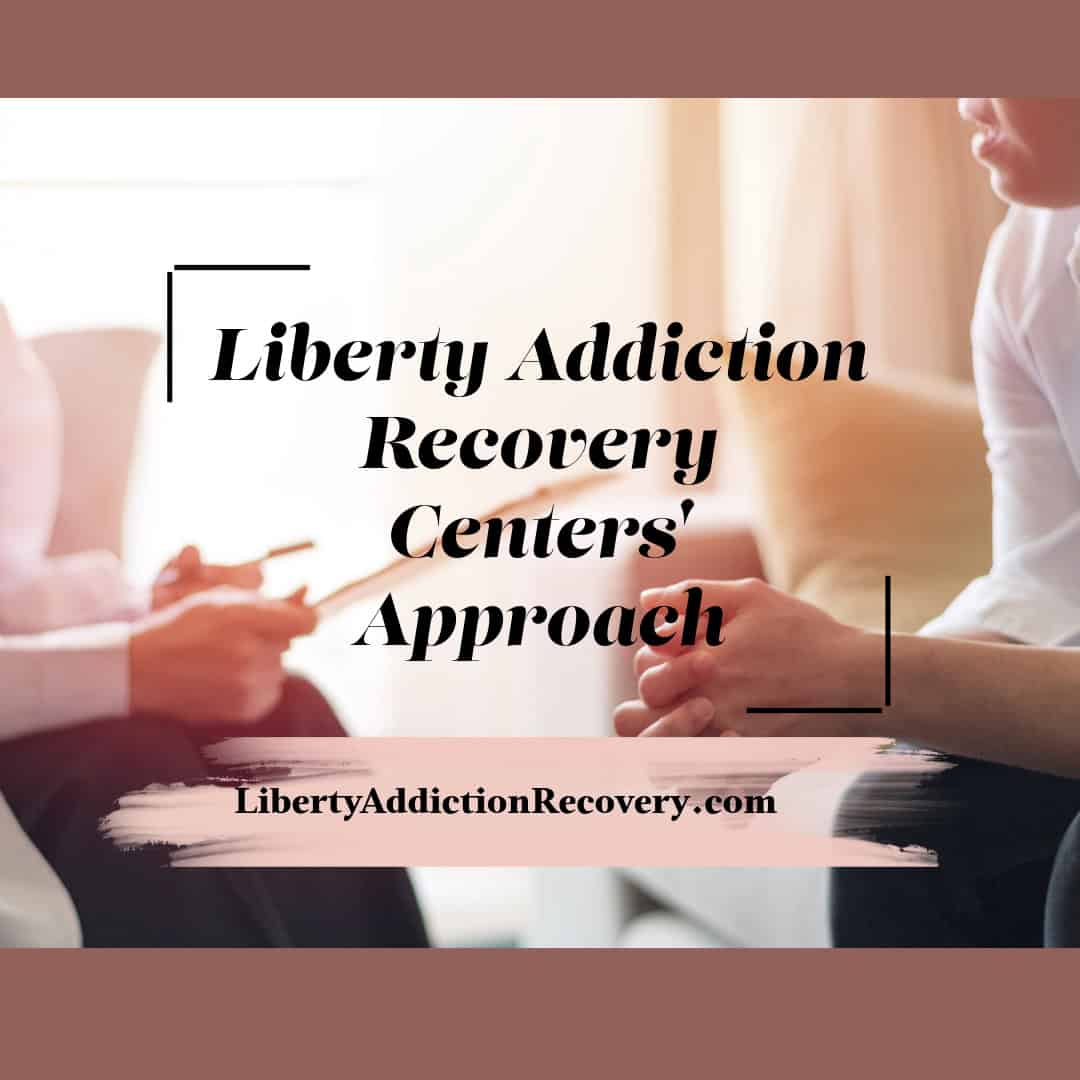
Liberty Addiction Recovery Centers’ Approach
We have a deep understanding of the intricate relationship between mental health and addiction. Our comprehensive and personalized approach to treatment ensures that each individual receives the care they need to address both their mental health and substance use disorders.
Comprehensive Assessments and Personalized Treatment Plans
The journey to recovery begins with an extensive assessment process. Our skilled professionals conduct thorough evaluations to accurately diagnose co-occurring disorders. This ensures that both conditions are identified and addressed from the outset.
Based on the assessment results, our team creates personalized treatment plans tailored to the unique needs of each client. These plans integrate various therapeutic modalities to provide holistic care that encompasses physical, emotional, and mental well-being.
Evidence-Based Therapies
Our treatment programs incorporate a range of evidence-based therapies designed to address both mental health and substance use disorders. Some of the core therapies we utilize include:
- Cognitive Behavioral Therapy (CBT): CBT is a cornerstone of our treatment approach, helping clients understand and change the patterns of thinking and behavior that contribute to their substance use and mental health issues.
- Dialectical Behavior Therapy (DBT): DBT is particularly effective for individuals with personality disorders and those who struggle with intense emotional regulation. It combines cognitive-behavioral techniques with mindfulness practices to promote emotional stability.
- Motivational Interviewing: This client-centered approach enhances motivation to change by exploring and resolving ambivalence toward recovery. It empowers clients to take ownership of their treatment process.
- Family Therapy: We recognize families’ crucial role in the recovery journey. Family therapy sessions help improve communication, resolve conflicts, and provide education about co-occurring disorders. This creates a supportive environment that fosters lasting recovery.
Complementary Therapies
In addition to traditional therapies, there are a variety of complementary therapies to support overall well-being. These therapies help clients develop coping strategies, reduce stress, and promote relaxation.
- Yoga and Meditation: These practices enhance physical and mental well-being, promoting mindfulness and reducing stress.
- Art Therapy: Creative expression through art provides a therapeutic outlet for emotions and can aid in processing traumatic experiences.
- Exercise and Nutrition: Physical health is an integral part of recovery. Our programs emphasize the importance of exercise and healthy nutrition to support overall wellness.

Success Stories and Testimonials
Many of our clients have successfully navigated their recovery journeys and achieved lasting sobriety. Here are a few testimonials from individuals who received integrated treatment at Liberty:
- “Liberty helped me understand the root causes of my addiction and gave me the tools to manage my depression and substance use. The comprehensive approach truly saved my life.” – Sarah M.
- “The team at Liberty provided unwavering support to both me and my family. The personalized treatment plan made all the difference in my recovery.” – John D.
Liberty Employment Connections
Beyond initial treatment, Liberty Addiction Recovery Centers extends support through our Liberty Employment Connections program. This initiative helps clients build fulfilling lives post-treatment by connecting them with educational opportunities, upskilling programs, and career resources. This empowers individuals to achieve long-term success and independence.
At Liberty, we are dedicated to providing the highest quality care for those struggling with co-occurring disorders. Our integrated approach, compassionate team, and comprehensive resources create a conducive environment for sustainable recovery and a brighter future.
Conclusion – Co-occurring Disorders
Recap of the Importance of Addressing Mental Health in Addiction Recovery
The connection between mental health and addiction is undeniable and complex. At Liberty Addiction Recovery Centers, we believe that addressing both conditions concurrently is crucial for achieving sustainable recovery. By recognizing and treating co-occurring disorders, we can offer our clients a comprehensive path to healing that addresses their unique needs and challenges.
Final Thoughts on the Significance of Seeking Comprehensive Treatment
Despite the significant overlap between mental health issues and addiction, many individuals do not receive the integrated care they need. The statistics are alarming, with a large percentage of those with co-occurring disorders remaining untreated or only partially treated. This underscores the urgent need for comprehensive, integrated treatment approaches.
Reach Out – We Are Here to Help
If you or a loved one is struggling with the dual challenges of mental health issues and substance use disorders, know that help is available. Liberty Addiction Recovery Centers provide the compassionate, integrated care needed to navigate this complex path.
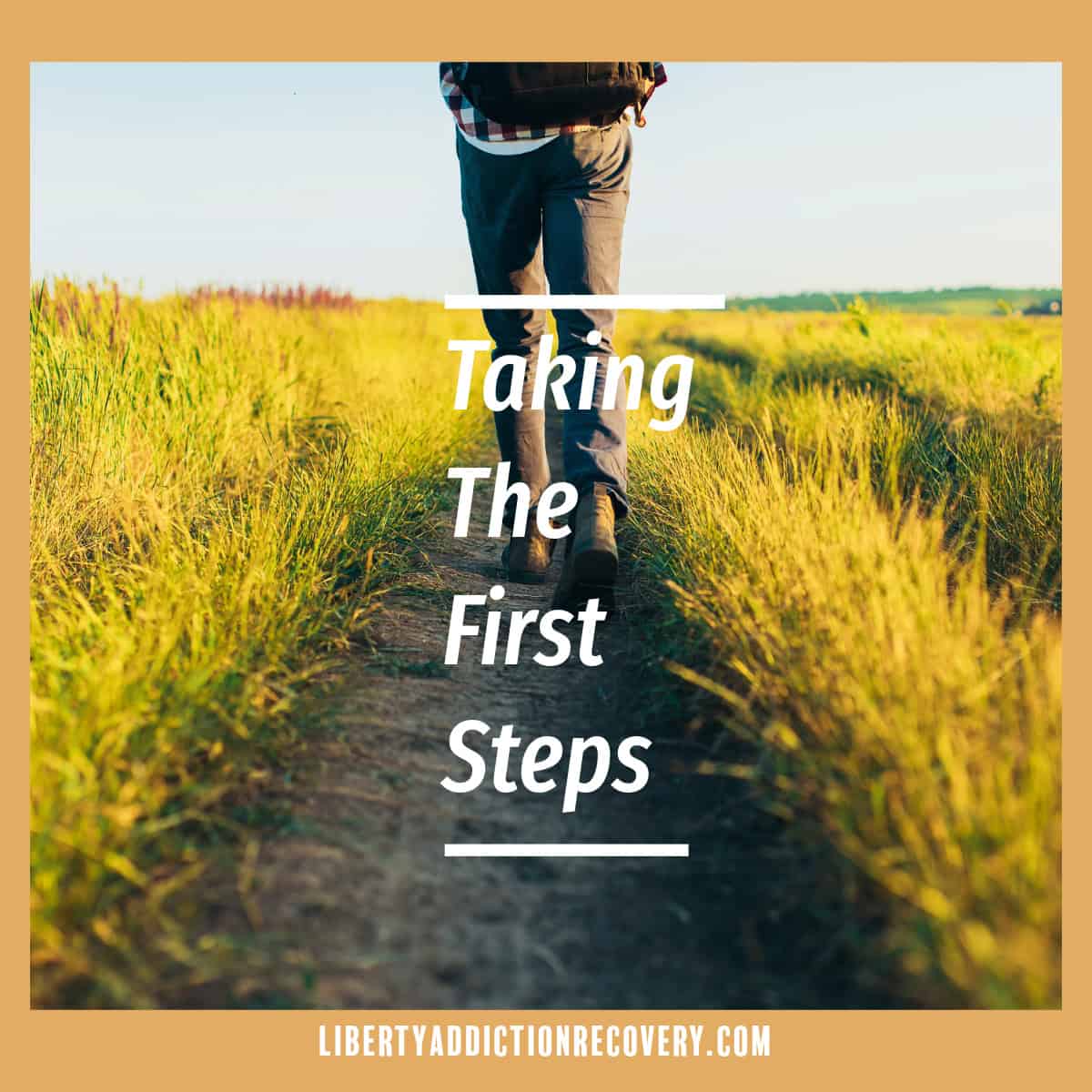
Take the First Step
- Contact Liberty Addiction Recovery Centers: Reach out to our team at any time to learn more about our services, programs, and how we can help you or your loved one achieve lasting recovery.
- Join a Support Group: Strengthen your support network by connecting with others who understand what you are going through and can offer valuable insights and encouragement.
- Seek Professional Help: Don’t wait to get the help you need. Reach out to professionals who specialize in integrated treatment for co-occurring disorders.
Your initiative can chart the course for a healthier, happier life for you and your loved one. Begin this crucial journey to wellness and recovery today with the support and expertise of Liberty Addiction Recovery Centers.
Remember
While the struggle with addiction and mental health issues is undoubtedly challenging, the support you provide, coupled with comprehensive treatment and community resources, creates a strong foundation for successful recovery. Let Liberty help you navigate this journey toward a brighter, healthier future.
